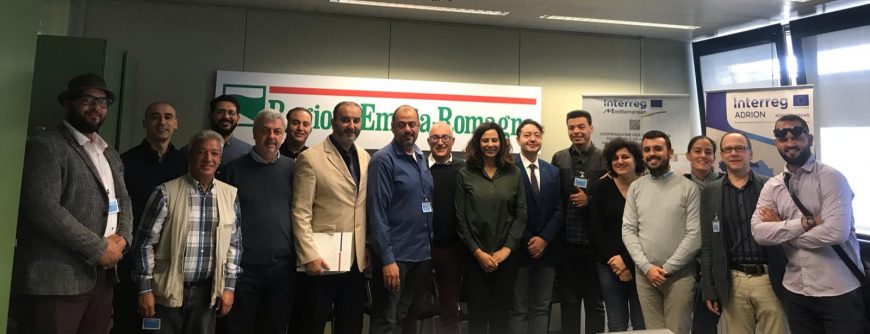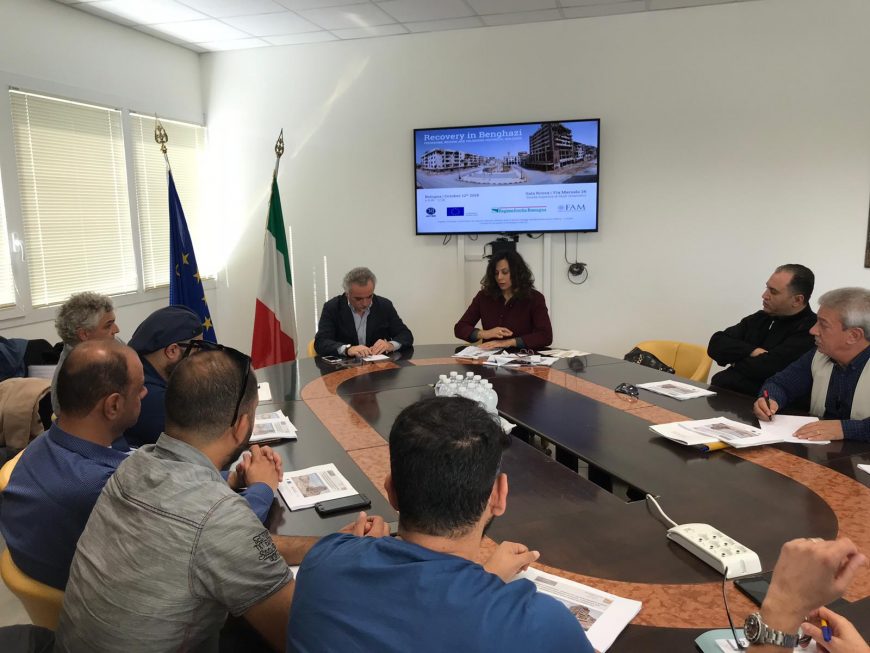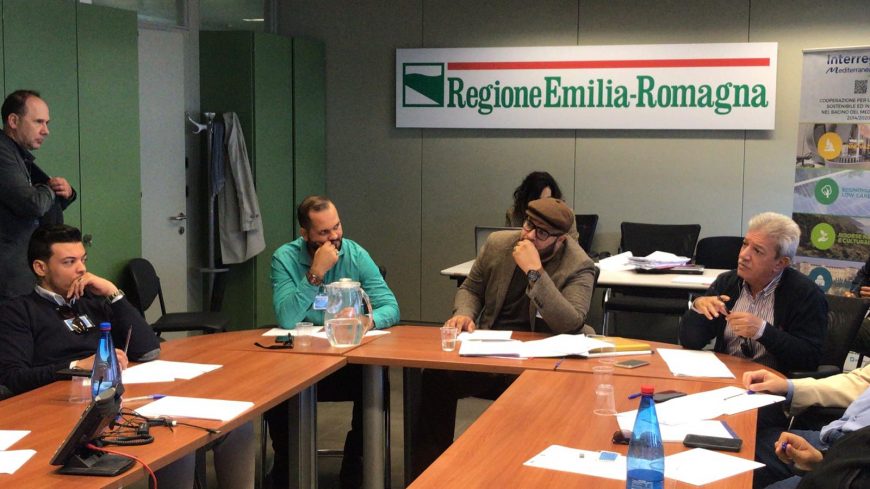In December 2016, a group of Libyan public administrators and health practitioners participated in a study tour of the Emilia Romagna Region of Bologna, Italy. The region suffered severe damage and internal displacement following earthquakes in 2012, a problem compounded by weak local governance. After a period of reconstruction, professionals in Emilia Romagna welcomed their Libyan counterparts, who are seeking to rebuild their own communities following years of destructive conflict, to share best practices for the rehabilitation of cities and health systems.
Study tour participants gain tools to rehabilitate health system
Through this tour, Libyan professionals studied how to adapt the reformation of the Italian health system to the Libyan health system. Under the objective of improving health service delivery in Libya, participants were trained by their Italian counterparts in health system management and finance.
16 participants took part in the first study tour, including 11 participants from the Ministry of Health and four participants representing the regional health services in the Eastern region. Libyan trainees studied a variety of subjects, including the decentralisation of the health system according to each region.
Rebuilding Benghazi with lessons learned from Italy
The second study visit in Emilia-Romagna centred on identifying governance frameworks to support the rebuilding of Benghazi. Participants practiced identifying and prioritizing reconstruction and development strategies, setting up timeframes for specific actions. They then tested the strengths and weaknesses of models, taking into account the local Libyan context (i.e. legislative framework, institutional framework, etc.).
We benefited from the experience in terms of lessons learned, particularly with the way they dealt with IDPs and the process of reconstruction. Given my experience in crisis management and emergency relief, I believe in general I gained knowledge from the experience.
Professionals from the municipality of Benghazi and the old city protection agency also benefitted from lessons learned in Italy following the earthquakes. Drawing on the recommendations and experiences of their Italian hosts, Libyan trainees devised a strategy for the reconstruction of the destroyed city centre of Benghazi and the preservation of cultural heritage sites.
I think the most interesting part of the tour was the way they had used technology in reconstruction and accountability through the creation of an online platform portal accessible to the residents of the region.


